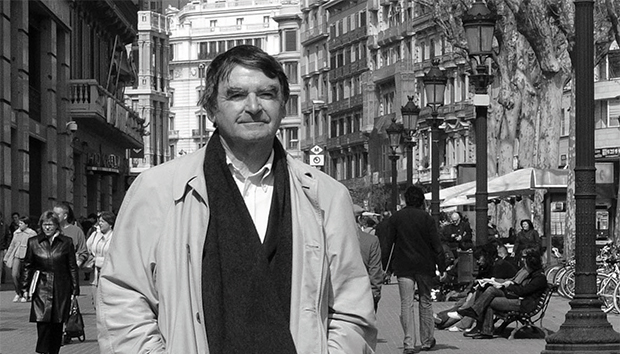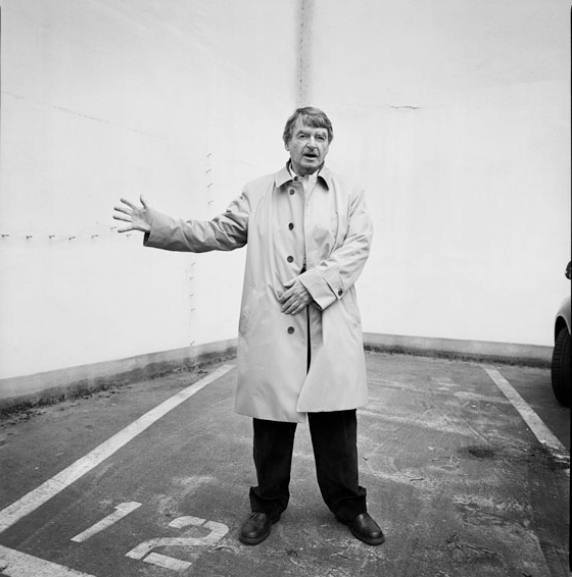Here's a thing that popped up on Instagram a little while ago
- a quotation (and pic) from Buckminster Fuller “How often I found where I should be going only by setting out for somewhere else.”
To which I suppose you might ask, “Well yes, but how often exactly?”
Anyway, it did make me think, in a way that I’d never quite thought before, that one of the great and comparatively rare pleasures of walking, is to be strolling along, going nowhere in particular, and suddenly to come across a geodesic dome.
In Los Angeles you can do it just by walking along Sunset Boulevard and seeing the Arclight cinema.
And if you walk further you might see them in some unexpected places – not a million miles away from the Hollywood sign:

And in Glendale you might once have walked by this dry cleaner, which I’m pretty sure was abandoned despite the Open sign on the door.
Or you might walk down a suburban street and think, who on earth lives in a house like this?
The experience can be even better if you’re walking in the desert. You crest a hill and look down, and boom there it is:
Or here:
Or here in Arizona:
Inevitably the experience happens rather more often in the United States that it does in old England but it’s not completely unknown. There were these belonging to restaurant in Gloucestershire named (I think) The Ragged Cot:
 |
| Photo by Caroline Gannon |
And there are these bad boys in Victoria Park,
the kind of backdrop that a lad might use for an author portrait:
 |
| Photo by Travis Elborough |
As for the question of whether Buckminster Fuller was much of a walker, well, his 1981 book The Critical Path certainly makes some mention of walking, as when he writes, “We walk right foot, left foot, not right foot, wrong foot.” Though I’d say we surely all put a foot wrong once in a while.
And here he writes later in the book, “As I have mentioned before and now repeat in a more comprehensive manner, in 1800 the average human being was walking an annually cumulative distance of 1,100 miles and riding ten additional annual miles. By 1900 the average human being was yet walking a total of yearly distance of 1,100miles but the average U.S.A. citizen's annual vehicle-ridden miles had increased to 400. All humanity is as yet in 1980 walking an annual average of 1,100 miles but in the U.S.A., Europe, and parts of the Near East, Asia, Africa, and Australia, all men, women, and youngsters free to travel, are averaging over 20,000 annual miles of vehicular travel.”
I’ve no idea how accurate his numbers are, though the general principle seems reasonable. I know a good many people who walk more than 1,100 miles a year; as for the 20,000 vehicular miles, I suppose much depends on whether you’re frequent flyer.

But here’s a thing. During World War One, Fuller married Anne Hewlett, daughter of an architect, and when the war was over he started a company with his father-in-law, making bricks out of wood shavings. Things didn’t go well, and on the verge of bankruptcy, they sold the business 1927. At much the same time, Anne gave birth to a baby daughter. As a jobless new dad Fuller was deeply depressed. One day, he was walking by Lake Michigan, and by his own account, contemplating suicide. But suddenly when he found himself floating a few feet above the ground, bathed in sparkling light; which I suppose is walking of a sort. He felt time standing still and he heard a voice say, “You do not have the right to eliminate yourself. You do not belong to you. You belong to Universe.” Note the capitalization and absence of definite article.




































